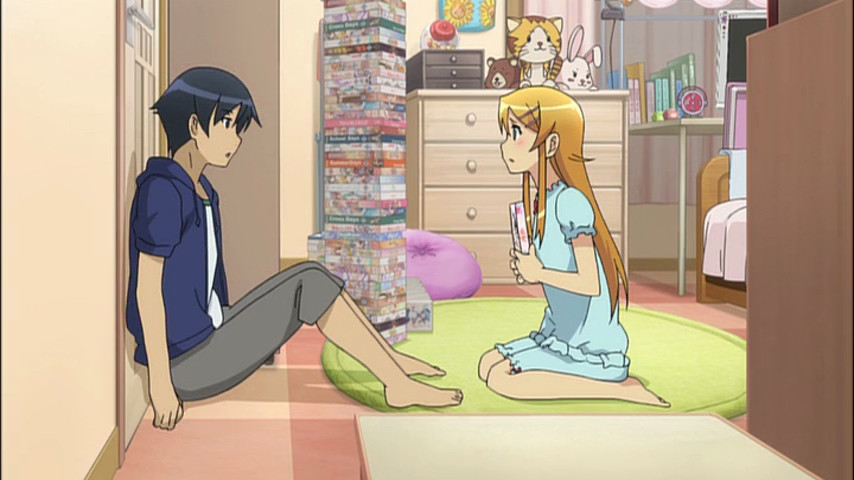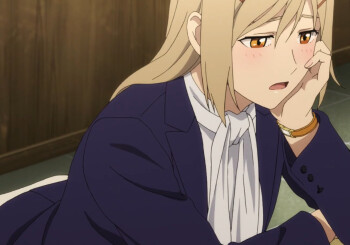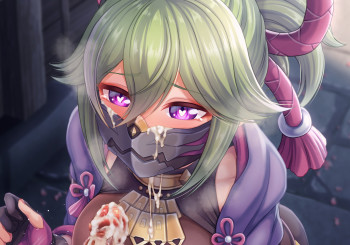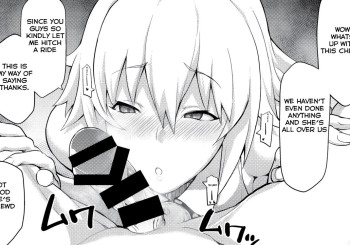
When Love Stays in the Family
(Screenshot from Oreimo)
Incest is a popular trope in fiction, especially hentai. It has mixed reception in mainstream media (see: Game of Thrones, Ore no Imouto). In Oreimo especially could only have an implied incest ending. The author was not allowed to leave it as an incest ending, but he has stated that the final kiss was supposed to be on the mouth, and Kirino's line ("We're gonna have life counseling when we get home", or something along those lines) is supposed to suggest that they are still secretly together. In reality however, incest was a practiced throughout history for various reasons, among them being members of high society keeping their bloodline "pure". Genetic sexual attraction is when two people of similar appearances and thought processes tend to go together, and who could be more similar than relatives? The Westermarck effect desensitizes relatives to this, as they're raised together to have that familial relationship that inhibits any romantic attraction.
In ancient times, different countries had different laws concerning incest. In ancient China, the surnames determined legality. If people had the same surnames, they couldn't get married. If they didn't have the same surname, they could. Relation didn't matter there. In Egypt, rulers typically married their siblings. The most famous case of this being King Tutankhamun. His parents were Akhenaten and one of Akhenaten's sisters. Tutankhamun's own spouse was his half-sister/cousin, and they bore no living children due to genetic failure.
In ancient Greece, Spartan King Leonidas I married his niece Gorgo, daughter of his half-brother Cleomenes I. They had one son, Pleistarchus, who ruled Sparta as co-king like his father.
In Japan, half-sibling marriages were accepted, as seen when Emperor Bidatsu and his half-sister Empress Suiko were married around 577 after his first wife died. Prince Kinashi no Karu had sexual relationships with his full sister Princess Karu no Ōiratsume, but this was frowned upon, and he married a Korean noblewoman by the name of Daemok. In modern times, there is a misconception that mother and son relationships are common, but there is no data to support this. Acts like 'a mother helping her son to focus on studying' does not happen outside of fictional media.
There is a great stigma on incest, as it can lead to inbreeding, a child born between direct relatives. In modern times, this is only acceptable in places that permit second or third cousins to wed. This is due to the inbreeding coefficient. The coefficient of relationship is a measure of the degree of consanguinity, or biological relationship, between two individuals. MatPat of The Film Theorists has an entire episode dedicated to his, which is linked down below. To summarize, the common notion that, should direct relatives sire a child or children, if they survive, there is a good chance that it will not be a pleasant life. There is a 1 in 4 chance that the child will have genetic issues. For second or third cousins, the chances of such issues are dramatically reduced. This was a known fact even in ancient times, thus necessitating laws declaring such relationships as illegal, or at the very least, frowned upon.
While most people can differentiate between fiction and reality, there is still a great deal of constraint placed on what can be portrayed in fictional media. When it comes to incest, the first title that people name is the anime, manga, and light novel series of Ore no Imouto. For the sake of brevity, the series can be summarized as such: Kosaka Kyousuke and Kosaka Kirino slowly develop a relationship that changes from siblings to lovers. This appears to be the canon relationship, though there is an alternate ending that shows Kyousuke having stayed with Gokou Ruri, also known as Kuroneko. As was stated before, things got so heated for the author Tsukasa Fushimi that a proper incest ending was not possible, and could only be hinted. Keeping with his theme, Fushimi created another incest series Eromanga-sensei. That series only involves step-siblings, so the controversy should be lesser than Oreimo's.



Another series that brings together step-siblings is known as Recently, My Sister is Unusual, or ImoCho for short. The series follows a step-brother named Yuya and step-sister named Mitsuki living together without parental supervision. The ghost of a girl who loved Yuya in life named Hiyori begins to haunt Mitsuki and compels her to pursue her step-brother so she can ascend to the hereafter. Currently, the only controversy surrounding this series is far more benign than Oreimo's: its time-slot. People feel it airs too early and a younger audience could be watching it.
Incest is a popular trope, especially in hentai. It's little wonder why, it's deemed forbidden across the globe. Forbidden things tend to be scandalous, and indeed more appealing to people who can walk on the wild side, especially from the safety of a computer. What are your thoughts on this controversial topic? Is incest really all that bad? Is it a favorite forbidden genre of yours? Tell us about it in the comments below.
Sources:
Oreimo: The World of Ero and Incest;
https://myanimelist.net/featured/505/Oreimo__The_World_of_Ero_and_Incest
New series ImoCho trumps OreImo in Incest Controversy;
http://www.otakuusamagazine.com/new-series-imocho-trumps-oreimo-in-incest-controversy/
Film Theory: Is Daenerys Going MAD? - Game of Thrones;
FilmTheorists - https://www.youtube.com/watch?v=LU2N_5ncnUA













